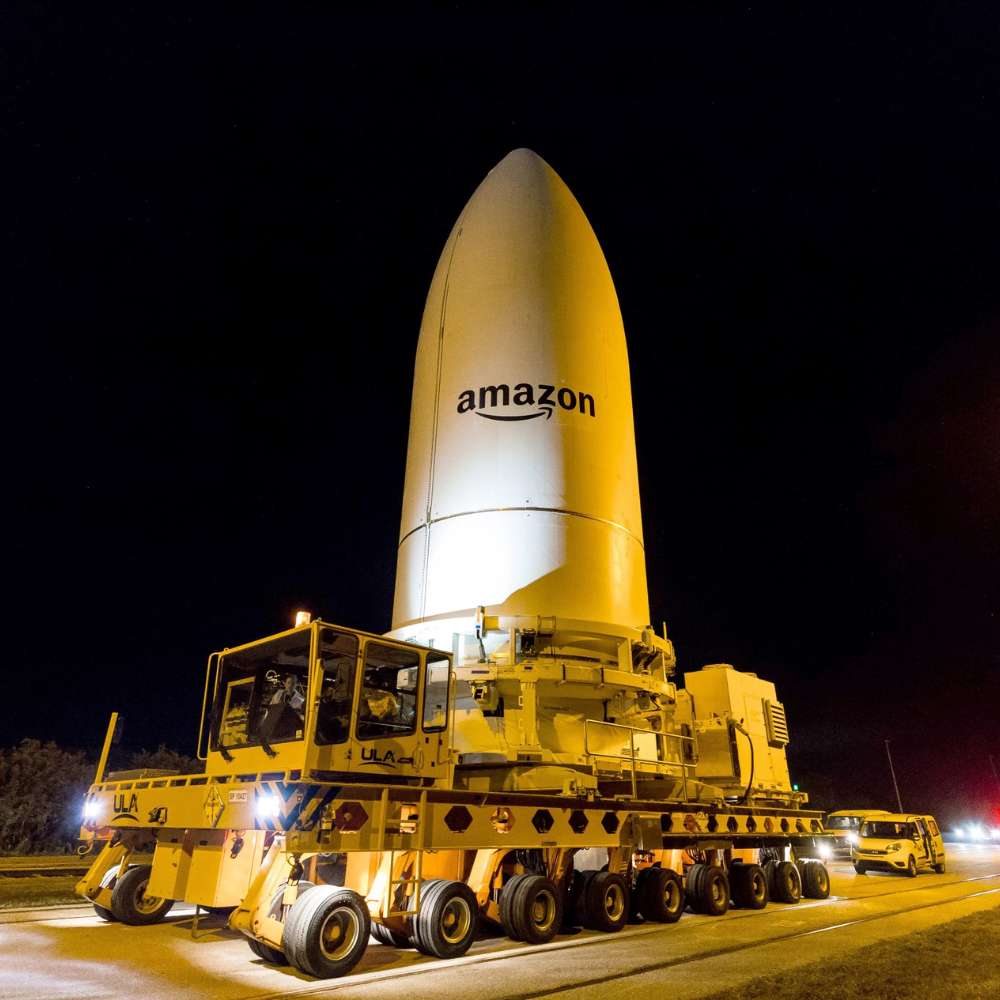Launch Date Set for Project Kuiper Satellites Expansion
Amazon and United Launch Alliance (ULA) have officially scheduled April 9 as the launch date for the first full-scale batch of satellites for Amazon’s Project Kuiper broadband network. The Atlas V rocket is set to lift off from Cape Canaveral Space Force Station’s Space Launch Complex 41 in Florida, with a three-hour launch window opening at noon ET. ULA has announced plans to live stream the event, providing real-time coverage of the mission.
The mission, named Kuiper-1 (KA-1), will deploy 27 satellites into orbit at an altitude of 280 miles (450 kilometers). While ULA successfully launched two prototype Kuiper in October 2023 for preliminary testing, this upcoming launch marks the first deployment of operational satellites aimed at delivering high-speed internet globally.
“We’ve designed some of the most advanced communications satellites ever built, and every launch is an opportunity to add more capacity and coverage to our network,” said Rajeev Badyal, vice president of Project Kuiper satellites. He emphasized that while extensive testing has been conducted on the ground, certain insights can only be gained from real flight conditions. This mission represents the first instance of launching the finalized satellite design and deploying multiple satellites simultaneously.
Advancements and Deployment Strategy
Amazon has reported significant improvements to the Kuiper satellite design since the launch of its prototypes in 2023. The company’s primary manufacturing facility in Kirkland, Washington, has produced upgraded versions of key satellite components, with additional work carried out at Project Kuiper’s headquarters in nearby Redmond.
The latest enhancements include advancements in phased array antennas, processors, solar arrays, propulsion systems, and optical inter-satellite links. Additionally, to mitigate concerns over space debris and brightness affecting ground-based astronomy, Amazon has incorporated a dielectric mirror film that scatters reflected sunlight, reducing visibility from Earth.
Once deployed, the satellites will establish ground-to-space contact before gradually moving to their designated orbit at 392 miles (630 kilometers) using electric propulsion systems. The Project Kuiper Satellites mission operations team in Redmond will oversee the transition to operational status. Under Amazon’s current license from the Federal Communications Commission (FCC), the company is mandated to launch 3,232 Kuiper satellites by 2029, with at least half in orbit by mid-2026.
Competitive Landscape and Future Plans
To accommodate the upcoming launch, ULA is utilizing the most powerful configuration of the Atlas V rocket, equipped with five solid rocket boosters. Amazon has secured seven additional Atlas V missions for Project Kuiper, and satellite shipments have already begun for subsequent launches from Florida. Furthermore, Amazon has contracted 38 launches on ULA’s larger Vulcan Centaur rocket, along with more than 30 launches using vehicles from Arianespace, Blue Origin, and SpaceX.
Project Kuiper’s aggressive expansion is aimed at catching up with SpaceX’s Starlink, which currently operates a network of over 7,000 satellites and serves more than 5 million subscribers. Another competitor, Eutelsat OneWeb, is also vying for dominance in the satellite broadband market.
According to recent industry analysis, Project Kuiper Satellites has become the leading space venture in the Seattle area in terms of employment opportunities. A report from Alliance Velocity shows that as of March 31, Kuiper accounted for 47% of the 1,149 open space industry jobs in Washington state. In comparison, Jeff Bezos’ Blue Origin accounted for 21%, while SpaceX’s Starlink, which manufactures satellites in Redmond, accounted for 19%.
With its first operational launch approaching, Amazon is poised to take significant steps toward establishing its presence in the global satellite broadband industry.







